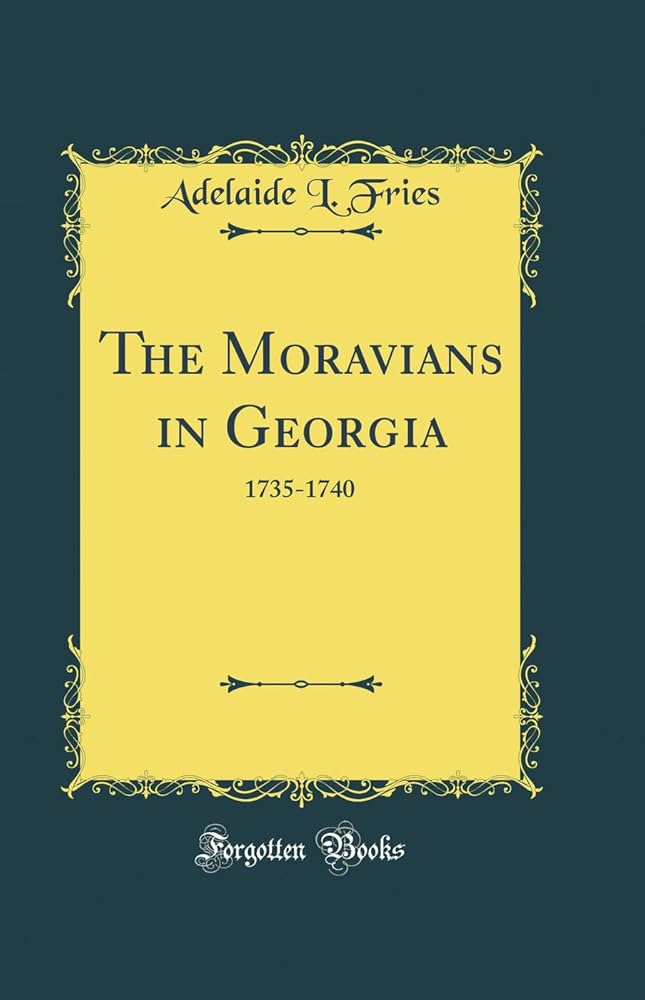Chapter I — Antecedent Events
byChapter I — Antecedent Events begins with a portrait of early 18th-century England, where social reformers were disturbed by the harsh treatment of debtors. James Oglethorpe, deeply moved by the conditions in London’s prisons, spearheaded a vision for a colony that would rehabilitate the poor rather than punish them. He saw land in America as a means to offer a fresh start, believing that structured opportunity could restore dignity. Parliament responded, and by 1732, a charter was granted to the Trustees of Georgia. This legal document permitted settlement by the poor and persecuted, excluding Catholics due to ongoing British fears over papal influence. It also imposed a unique moral constraint: the trustees could not personally profit, ensuring the colony’s founding principles would remain altruistic.
These early settlers were not just impoverished Britons; persecuted European Protestants were also welcomed. Among the first were the Salzburgers, who fled Catholic repression and arrived in Georgia with the help of public donations and royal support. Their town, Ebenezer, became a powerful symbol of what Georgia could represent—a safe haven for faith-driven communities. Meanwhile, another group, the Moravians, prepared for their own migration. Their history of spiritual independence and communal living made them ideal participants in the Trustees’ utopian ambitions. Originating from the Unitas Fratrum in Bohemia and Moravia, they had endured centuries of persecution before finding refuge under Count Zinzendorf in Saxony. Their eventual journey to Georgia was part of a larger spiritual and social experiment in the New World.
Oglethorpe’s influence extended far beyond administration. His diplomatic outreach to Native American tribes helped secure peace in the region, which allowed the settlers to cultivate land and build communities with reduced threat of conflict. The Trustees hoped Georgia would also act as a geopolitical buffer against Spanish Florida, shielding British colonies to the north. This blend of charity and strategy distinguished Georgia from other colonies. It was planned with moral architecture: slavery was initially banned, alcohol restricted, and landholding capped to prevent class stratification. The colony’s soil and climate were described with optimism, touted as suitable for silk production and viticulture, promising both spiritual and commercial success.
Yet, as this chapter shows, idealism had its limitations. The promise of fertile land often clashed with the reality of an untamed environment. Disease, climate, and labor shortages quickly tested the colonists’ resilience. Despite these challenges, the Moravians maintained a disciplined life centered around worship, music, and mutual care. Their settlement would eventually become a model of communal effort and missionary outreach. Unlike other settlers, they came not primarily to prosper but to serve. Their vision aligned with Oglethorpe’s hopes for Georgia—not just as a place of opportunity, but as a moral beacon. Their arrival in Georgia, although modest in numbers, carried the weight of centuries of conviction.
The Trustees’ charter and recruitment efforts were ambitious in scope but fragile in practice. Balancing economic expectations with humanitarian ideals proved difficult. While the Salzburgers adapted through agricultural perseverance, the Moravians sought to build spiritually cohesive communities rooted in pacifism and simplicity. These early chapters of Georgia’s settlement illustrate not just the planting of a colony, but the clash and fusion of European worldviews. The colony became a space where religious exiles, idealists, and practical reformers collided and cooperated. Their intertwined stories reflect a broader narrative—how the American South began not only as a frontier but also as a forge for cultural and spiritual experiment.
By anchoring Georgia’s origin in both economic planning and religious refuge, this chapter illuminates the powerful role of conviction in shaping colonial identity. The Moravians and Salzburgers did not come merely to escape hardship but to build something enduring and principled. The chapter closes with a sense of transition, where the groundwork has been laid and the arrival of the Moravians signals the beginning of a unique experiment in American communal and religious life. Their legacy, though tested by future hardship, would root itself in education, tolerance, and service—values planted alongside the first crops in Georgia’s red soil.

